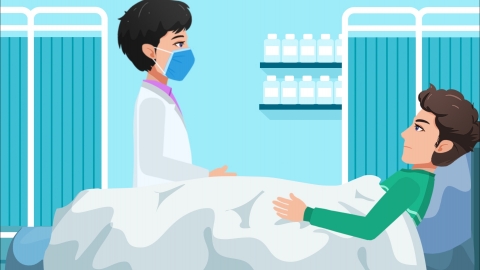What should be noted after appendectomy?
Generally, after appendectomy, it is important to pay attention to proper wound care, gradually adjust diet, reasonably arrange physical activity, closely monitor symptoms, and develop good lifestyle habits to promote wound healing and recovery while reducing the risk of complications. Specific recommendations are as follows:

1. Proper wound care: Keep the surgical wound clean and dry after surgery, avoiding contact with water. Change dressings regularly as directed by your doctor. Monitor the wound for signs of infection such as redness, swelling, discharge, or increased pain, and seek prompt treatment if any abnormalities occur. Avoid rubbing or pressing on the wound, and wear loose, breathable clothing to create a favorable environment for healing.
2. Gradual dietary adjustment: In the early postoperative period, consume liquid or semi-liquid foods such as rice soup, porridge, or well-cooked noodles to reduce gastrointestinal burden. As gastrointestinal function recovers, gradually transition to soft foods and then a regular diet. Avoid spicy, greasy, raw, cold, and gas-producing foods such as chili peppers, fried foods, and legumes.
3. Appropriate activity planning: Light turning in bed is allowed within 6–12 hours after surgery. After 24 hours, begin slow walking according to your recovery progress to promote gastrointestinal motility and blood circulation, reducing the risk of bowel adhesions. However, avoid strenuous exercise, bending over, or lifting heavy objects. High-intensity activities such as running or jumping should be avoided for 1–2 months after surgery.
4. Close symptom monitoring: Watch for symptoms such as fever, worsening abdominal pain, bloating, nausea, vomiting, or cessation of flatus and bowel movements. Persistent fever or increasing abdominal pain and distension may indicate complications such as intra-abdominal infection or bowel adhesions, and medical staff should be informed promptly.
5. Develop healthy lifestyle habits: Ensure adequate sleep after surgery and avoid staying up late or overexertion so that the body has sufficient time to recover. Maintain a positive mood and avoid anxiety. Quit smoking and alcohol consumption to minimize bodily irritation.
Postoperative care should be progressive and adjusted flexibly based on individual recovery. Scientific and systematic care helps the body return to normal function as soon as possible.





